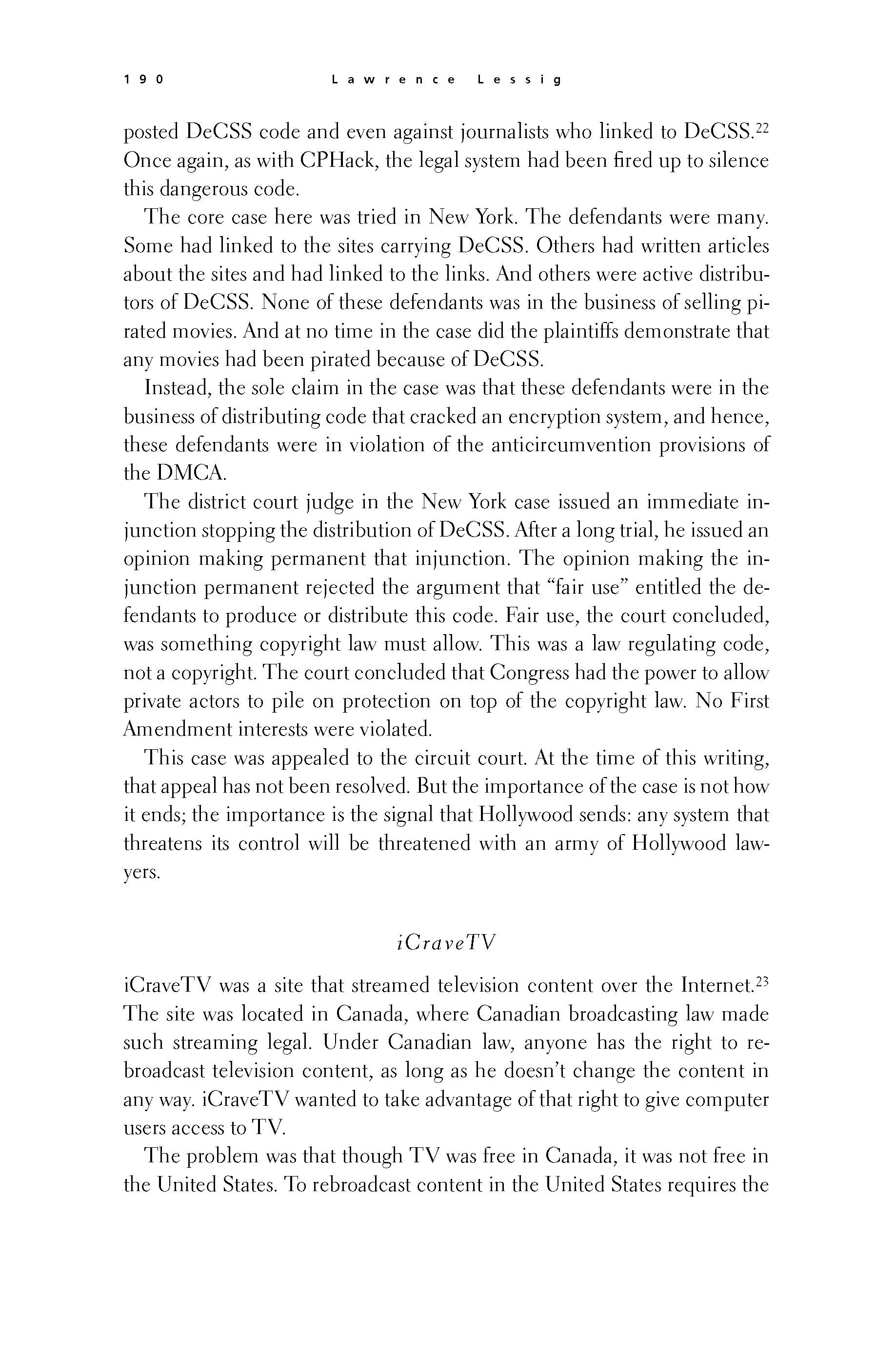 p189 _
-chap- _
toc-1 _
p190w _
toc-2 _
+chap+ _
p191
p189 _
-chap- _
toc-1 _
p190w _
toc-2 _
+chap+ _
p191
posted DeCSS code and even against journalists who linked to DeCSS.[11-22]
Once again, as with CPHack, the legal system had been fired up to silence
this dangerous code.
The core case here was tried in New York. The defendants were many.
Some had linked to the sites carrying DeCSS. Others had written articles
about the sites and had linked to the links. And others were active distribu-
tors of DeCSS. None of these defendants was in the business of selling pi-
rated movies. And at no time in the case did the plaintiffs demonstrate that
any movies had been pirated because of DeCSS.
Instead, the sole claim in the case was that these defendants were in the
business of distributing code that cracked an encryption system, and hence,
these defendants were in violation of the anticircumvention provisions of
the DMCA.
The district court judge in the New York case issued an immediate in-
junction stopping the distribution of DeCSS. After a long trial, he issued an
opinion making permanent that injunction. The opinion making the in-
junction permanent rejected the argument that "fair use" entitled the de-
fendants to produce or distribute this code. Fair use, the court concluded,
was something copyright law must allow. This was a law regulating code,
not a copyright. The court concluded that Congress had the power to allow
private actors to pile on protection on top of the copyright law. No First
Amendment interests were violated.
This case was appealed to the circuit court. At the time of this writing,
that appeal has not been resolved. But the importance of the case is not how
it ends; the importance is the signal that Hollywood sends: any system that
threatens its control will be threatened with an army of Hollywood law-
yers.
/tab\/tab\_iCraveTV_/tab\/tab\
iCraveTV was a site that streamed television content over the Internet.[11-23]
The site was located in Canada, where Canadian broadcasting law made
such streaming legal. Under Canadian law, anyone has the right to re-
broadcast television content, as long as he doesn't change the content in
any way. iCraveTV wanted to take advantage of that right to give computer
users access to TV.
The problem was that though TV was free in Canada, it was not free in
the United States. To rebroadcast content in the United States requires the
[[190]]
p189 _
-chap- _
toc-1 _
p190w _
toc-2 _
+chap+ _
p191